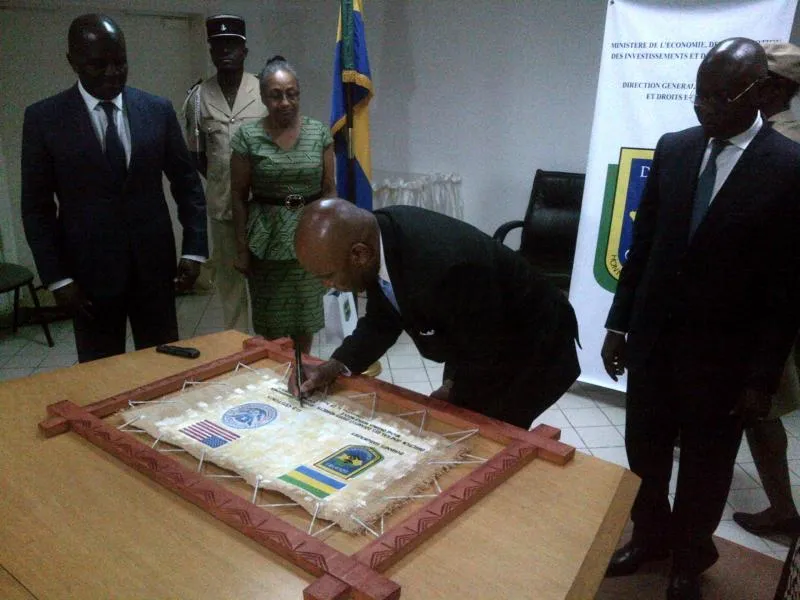The United States signed a Customs Mutual Assistance Agreement (CMAA) with Gabon on August 27, 2015 marking a significant milestone in collaboration on security and trade facilitation between the two countries. U.S. Customs and Border Protection (CBP) International Affairs Assistant Commissioner Charles E. Stallworth, II signed the agreement on behalf of the United States and the Customs and Indirect Duties Director General Michel Ondinga Ngouengoue signed on behalf of Gabon. The U.S.-Gabon CMAA was signed in Libreville, Gabon.

Standing from left, Gabon Economy and Finance Minister Regis Immongault, U.S. Ambassador Cynthia Akuetteh, Assistant Commissioner Charles Stallworth II, and Customs and Indirect Duties Director General Michel Ondinga Ngouengoue
The United States has now signed 76 CMAAs with other customs administrations across the world. CMAAs are bilateral agreements between countries and enforced by their respective customs administrations (for the United States this is CBP and U.S. Immigration and Customs Enforcement). They provide the legal framework for the exchange of information and evidence to assist countries in the enforcement of customs laws, including duty evasion, trafficking, proliferation, money laundering, and terrorism-related activities. CMAAs also serve as foundational documents for subsequent information sharing arrangements, including mutual recognition arrangements on authorized economic operator programs.
CBP is one of the U.S. Department of Homeland Security’s largest and most complex components, with a priority mission of keeping terrorists and their weapons out of the United States. It also has a responsibility for securing the border and facilitating lawful international trade and travel while enforcing hundreds of U.S. laws and regulations, including immigration and drug laws.
U.S. Immigration and Customs Enforcement is the largest investigative arm of the U.S. Department of Homeland Security. ICE is a 21st century law enforcement agency with broad responsibilities for a number of key homeland security priorities.

